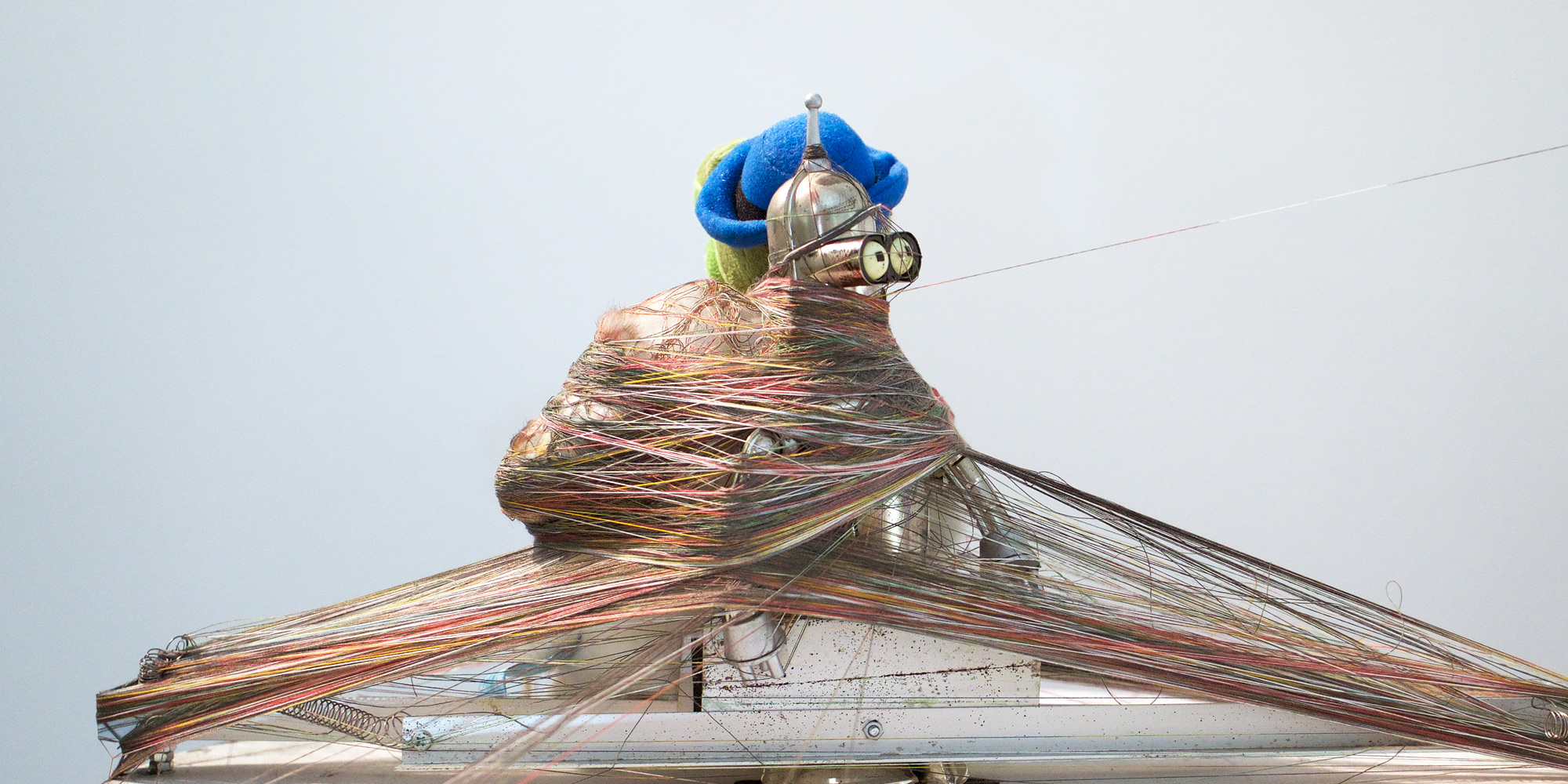Based upon three main concepts of this Festival: “Arts&Science,” “Error, Fake & Failure” and “Error in progress,” one list of special sessions will be held on Saturday 08.09, under the name “Artists Talks.” In each of them, selected artists from different areas of Art&Science will present their artistic work, showing from a forensic approach the deconstruction of their processes of creation and research. These sessions enable the attendants to see the connection of Error, Fake and Failure with creativity, and to learn different strategies and methodologies directly from the artist experience.
| Michael Saup (DE) | The Enigmatic Electron |
| Alexander Peterhaensel (DE) | Smile to Vote – Political Physiognomy Analytics |
| Dmitry Morozov (RU) | Error under control |
| Navid Navab (CA/IR) | chaosing into balance ∴ plenumophilic osmosis |
| Chloé Galibert-Laîné (FR) & Kevin B. Lee (DE/US) | In Defense of Poor Simulations |
Michael Saup (DE): The Enigmatic Electron…
…is an artistic talk about the shift from the digital arts employing bits stored via electrons to the nuclear arts employing radiation released via atoms. As paradigms of information society are being inversed by the reiteration of profound cultural errors, the collective that became connective will need to be corrective. Michael Saup will present and discuss artistic work in the context of digital culture, energy consumption and nuclear history.
Alexander Peterhaensel (DE): Smile to Vote – Political Physiognomy Analytics
By means of AI-based facial scanning, the Smile to Vote e-voting booth gages the political conviction of any given person and emulates the process of digitally casting a vote at the upcoming 2019 EU Parliament elections by simply looking into a camera. The talk describes the research findings and technologies which the art work is based upon; also the talk aims at starting a discussion on the implications for political processes as well as for our understanding of self-determination and freedom of will, once privacy is phased out for good and predictability of our very behavior through IT systems becomes ubiquitous.
Dmitry Morozov (RU): Error under control
I’ll talk about my practice in circuit bending and glitch art in the past and how it influenced my practices in building complex art & science project this days. As an example I’ll show few projects of using error technics in stable systems of my new installations.
Navid Navab (CA/IR): chaosing into balance ∴ plenumophilic osmosis
How may we preserve the richness of uncanny processes while leveraging them compositionally? The act of composing computational media could entail the orchestration of event dynamics to quasi-deterministically enact degrees of instability to enchant the stuff-of-the-medium. This process starts with of an ethico-aesthetical search for the excitable mysteries of matter (material-energy-affective processes), and leads to a careful orchestration of sensuous moments of knowing with others, humans or none. A trippy conversation with nature if you may, or multi-sensory encounters with whimsical forces at the border of experimental arts, tabletop cosmology, and natural fiction.
Chloé Galibert-Laîné (FR) & Kevin B. Lee (DE/US): In Defense of Poor Simulations
Our project searches for the online traces of two men who disappeared in Syria: one as a fighter, the other as a hostage. Images and texts accounting for their lives constitute puzzles with missing pieces arranged and rearranged on our desktops. We document the various and sometimes deceitful ways their stories have been told, including how we tell their stories to ourselves. We discuss what we learned from depicting our gazes as simulations of the ways others regard these ghostly online remnants.


